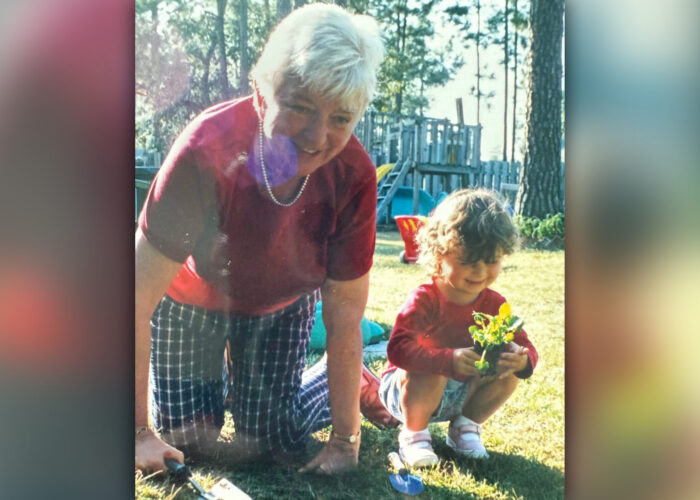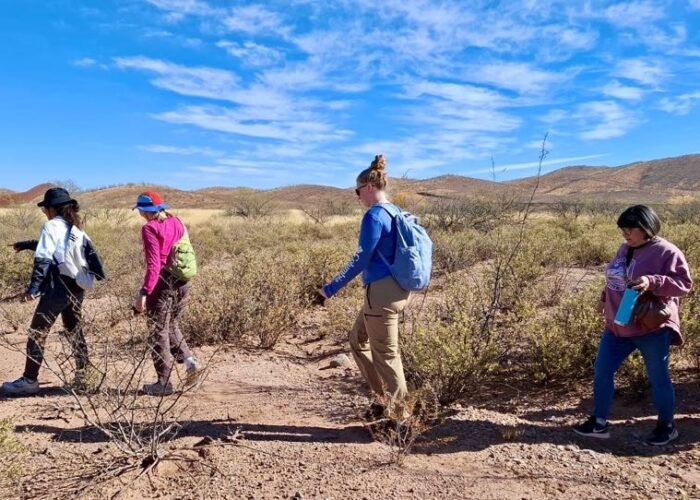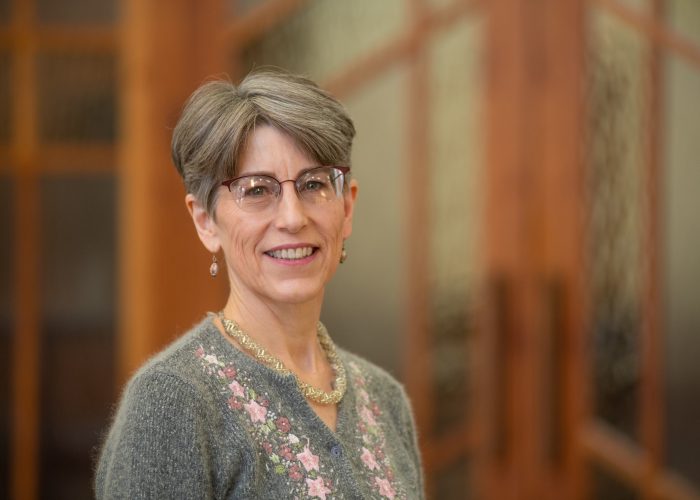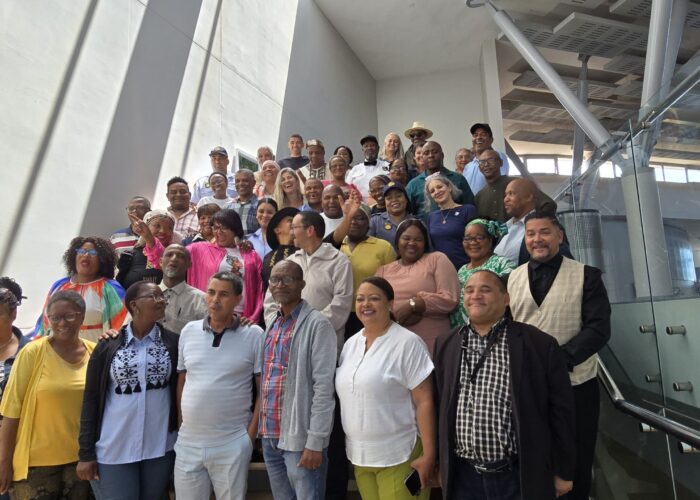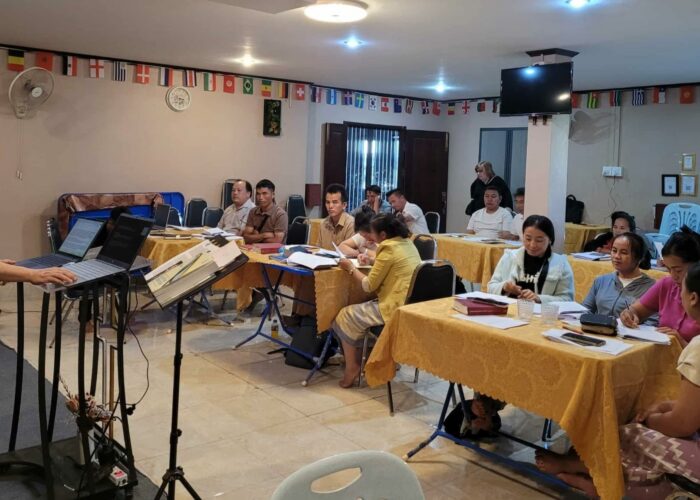Mennonite Mission Network brought together individuals from two of their programs for youth and young adults: Mennonite Voluntary Service (MVS) participants and Service Adventure leaders. They held the panel discussion “A Year of Serving” with Alexander Mace, Program Director for MVS, moderating. The panelists shared their personal service journeys of new places, people and experiences, revealing how a year of service reshaped their lives:
- Christian and Leigha Stoltzfus, Service Adventure leaders in Colorado Springs
- Emily Keefer, Alamosa, Colorado MVS
- Mir Knego, Service Adventure leader in Anchorage, Alaska
- Schyler Entz, Tucson, Arizona MVS
Service Adventure
Christian and Leigha Stoltzfus opened with a heartfelt account of leaving their demanding teaching careers to lead the Colorado Springs Service Adventure unit. After struggling with home/work balance as teachers, coaches, and mentors, they said that they realized their favorite work time was spent interacting with their students in the extra curriculars. Now, living alongside and young adults, ages 17-20, was a slower pace and more rewarding.
“Service is more a mentality than action,” Christian explained. He said service is really the way you are thinking about what you are doing and the meaning and values you bring to it.
“I’m not the most important person here. I’m here to find a way to make myself useful. My work is valuable in way that are not defined by how much money I make. It’s about looking at the challenges that society faces and thinking about how these can be addressed.”
Christian Stoltzfus, Service Adventure
Christian said living on a small stipend and cohabitating with peers, participants relinquish familiar support systems and learn how to budget and share. Working for local nonprofits can be a catalyst for learning in many ways like new schedules, cultures, skills, transportation modes, etc. He also noted that host congregations have no history with these new members or their families, so they are treated like adults and individuals. Leigha added that congregation members invite them into their homes in addition to the congregation’s activities, so these are often first experiences navigating social settings as adults but in a supportive environment.
Mir Knego, leading the Anchorage Service Adventure unit, shared that leading the unit was just as transformative for him as it is for the members of his unit. He had chosen this opportunity after a disappointing experience in the workforce. While he hoped for spiritual guidance, he felt he got that and much more. He now sees service as a posture of living and approaching situations with that posture.
Living in community, your needs are covered. You are living simply on a small stipend. You’re not in a position to gain or lose a lot of wealth so it makes you focus on being in the moment.
Mir Knego, Service Adventure
MVS
Emily Keefer, serving with MVS in Alamosa, brought a poignant perspective. At 23, she joined the one- to two-year program for adults over 20, finding placement with a restorative justice initiative. She had learned about it in school but wanted to experience it in a work setting. Feeling a little trepidation moving to a new community and living alone, she appreciated the support system offered by MVS and the decades of relationship the placement organizations have with Mission Network and other Mennonite organizations. What she didn’t expect is how much her placement and the whole MVS experience would change her.
“There is no way I could have been hired anywhere to do the level of hands-on, on-the-ground restorative justice work that I’ve been allowed to do with my organization.
Emily Keefer, MVS
Schyler Entz, an MVS participant in Tucson, offered a fresh viewpoint as a 21-year-old navigating her first year of service. Growing up, her congregation’s youth typically left to do service as part of their spiritual lives. She said living with housemates and engaging with the local multi-cultural Mennonite church showed her a new way to worship, and the proximity of the unit to the Mexico-U.S. border and issues of immigration in her community opened her to new ways of evaluating societal issues. Her overall experience sparked a desire to extend her term.
I grew up with a lot of people doing a service year. I knew it was always an option for me. So, it made me understand what service was from a young age.
Schyler Entz, MVS
The panelists agreed that the blend of community living, nonprofit service, and church connection was key. “It’s not just about doing good — it’s about living differently, living your values,” Mace summarized, noting how programs like MVS and Service Adventure adapt to participants’ needs, offering student loan assistance and flexible placements.

